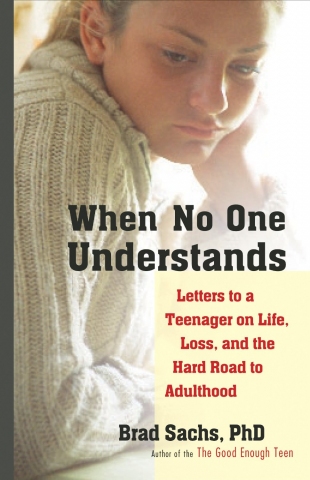"Adolescence is a painful time largely because it represents a death: a death of childhood, with all its hopes and illusions," writes Brad Sachs, a family therapist, author, and workshop leader. He continues: "When someone important to us has died, our task is both to hold on and to love on — we must hold on to what we loved about that person so that we will always be comforted and inspired by our memory of him or her but simultaneously let go enough that we can move on with the rest of our lives without being burdened by who and what we have lost. The process of maneuvering through adolescence is ultimately the same — we need to hold on to those parts of ourselves and our families that deserve to be honored, cherished, and preserved but let go of the parts that we have outgrown so that we can move on with the delicate process of becoming a new, separate, and unique person."
When 16-year old Amanda became his patient, she had made a serious attempt at suicide. After discovering that she was an avid reader and creative writer, Sachs decided to embark on a letter-writing relationship with her. The result is a collection of sensitive, cogent, and touching observations and counsel on many of the universal themes facing adolescents as they try to navigate the tricky voyage from childhood to adulthood.
Many adults persist in telling teenagers that "this should be the best time of your life," but youth have a hard time squaring that with the formidable struggles they go through day-by-day at home and in school. Sachs addresses quite a number of these challenges, including depression, handling the end of romantic relationships, drugs and alcohol, loneliness, sex, death, and more. Amanda tries to understand her mother, her father, her brother, and the role she has been assigned by the family. Sachs' letters are very persuasive in demonstrating his affirmation of her individuality and creativity and resilience: "Your honesty, your courage, and your heroically unwavering capacity to persist in the face of obstacles and impediments without completely tossing in the towel have taught me a great deal."
Sachs models for all of us the characteristics of an open, kind, sensitive, and positive relationship with a teenager who is having a difficult time negotiating the transition between childhood and adulthood. The use of letters is a wise move for they are able to express in a vivid and loving way the wisdom he has accrued over the years in dialogue with people. Some of them can be "treasured like early morning sunrises" (a phrase used to Macrina Wiederkehr to describe her delight in savoring letters).
